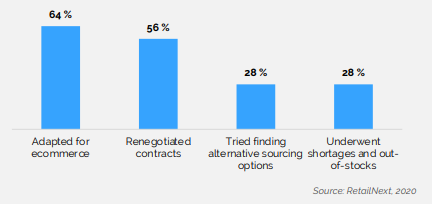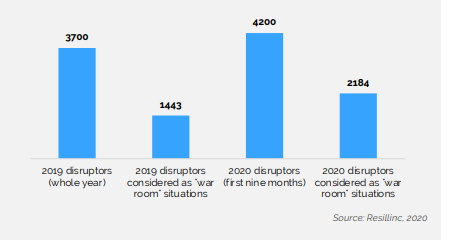The Problem Statement
Covid-19's Influence
Supply chain operations around the world have been disrupted as a result of the outbreak. Furthermore, due to constraints and safety protocols, professionals will confront supply chain adjustments in 2020.
Only 32% of worldwide merchants said their operations were disrupted. (2020, RetailNext)
Only 12% of merchants worldwide reported significant interruption as a result of the pandemic. (2020, RetailNext)
Adapting their supply chain for ecommerce was a challenge for 64% of merchants. (2020, RetailNext)
Contracts were renegotiated in 56 percent of cases. (2020, RetailNext)
28% attempted to locate alternate sourcing possibilities. (2020, RetailNext)
There were shortages and out-of-stocks in 28% of the cases. (2020, RetailNext)
From 2020 to 2027, the worldwide supply chain management industry is expected to develop at a CAGR of 11.2 percent, regardless of the pandemic. In 2020, the market is expected to reach $37.41 billion. (2020, Businesswire)
The Effect of COVID-19 on Supply Chain Management Globally
Supply Chain Disruptors
4200 interruptions happened during 2020. (According to the ISM, 2020)
This is a 14 percent increase over the 3,700 supply chain disruptors reported in 2019. (According to the ISM, 2020)
In 2020, 52 percent of disruptors resulted in a "war room" situation. This is when mapping supplier sites are at risk, and surveillance is increased. (According to the ISM, 2020)
Only 39% of disruptions in 2019 resulted in a "war room" situation. The growth in the first nine months of 2020 was 13 percentage points. (According to the ISM, 2020)
Supply Chain Disruptors: 2019 vs 2020
Last updated

